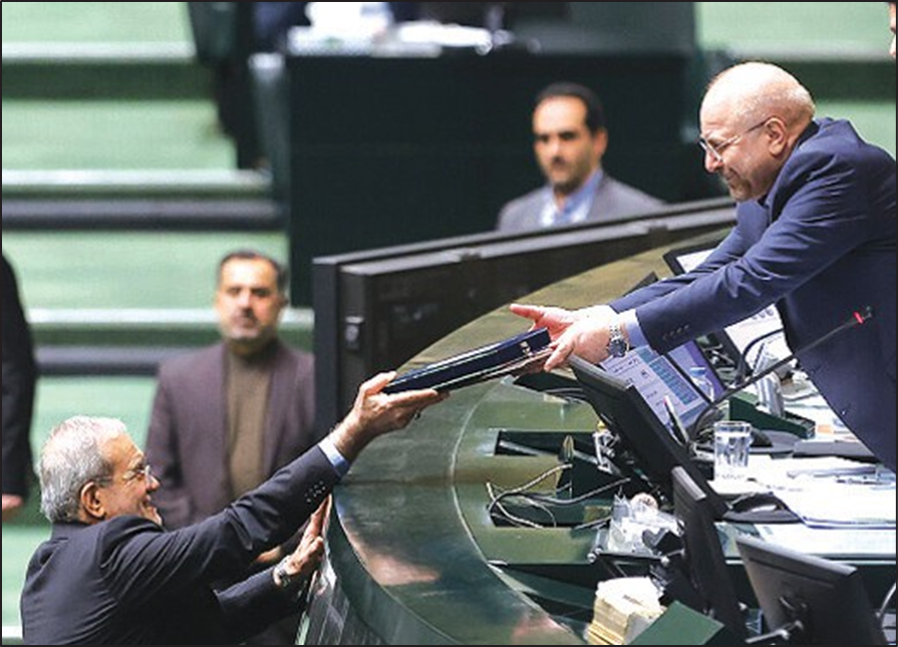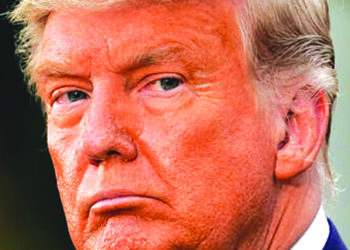George W. Bush has to say about Iran in his new book is that it isn’t very much.
Bush’s newly released memoir of his eight years in office, “Decision Points,” is almost 500 pages long. Of that, he devotes a mere five pages to Iran, barely 1 percent of the text. There are a few passing references to Iran in the text—including a mention of his listing it as part of the “Axis of Evil”—but only that one five-page section actually discusses policy toward Iran.
Bush never mentions Mohammad Khatami, who was president of Iran for more than half of Bush’s time in the White House. He never even mentions Supreme Leader Ali Khamenehi. He talks only about President Ahmadi-nejad, opening by saying that his election “was suspicious, to say the least.” That was a comment on his first election in 2005, not his re-election last year.
Bush lists an assortment of Ahmadi-nejad’s provocative comments and policies, ending with: “Ahmadi-nejad announced that Iran would resume uranium conversion,” apparently meaning uranium enrichment. Actually, the announcement that enrichment was being resumed was made a few weeks before Ahmadi-nejad became president and that was not his decision.
Bush then discusses in some detail his approach to Iran’s nuclear program, saying: “I thought about the problem in terms of two ticking clocks. One measured Iran’s progress toward the bomb; the other tracked the ability of the reformers to instigate change. My objective was to slow the first clock and speed the second.”
This is the first time that Bush discussed his thought processes in these terms. Never before had he said that he linked the two.
Bush writes, “I worked to speed the reform clock by meeting with Iranian dissidents, calling for the release of political prisoners, funding Iranian civil-society activists and using radio and Internet technology to broadcast pro-freedom messages into Iran.”
As for the nuclear challenge, Bush never says in his book that “all options are on the table.” What he does say is that he considered three specific options.
One option was an air attack. Many publications in Iran have reported that Bush actually wrote that he ordered an attack on Iran. But Bush says no such thing. He simply says he considered the possibility of an attack. “Military action would always be on the table,” he said, referring to his oft-stated mantra. “But it would be my last resort,” he added. That was also something the Bush Administration said repeatedly, but which often went unreported in the media.
Bush said he considered two other options. One was negotiating directly with Iran—which he rejected. “I believed talking to Ahmadi-nejad would legitimize him and his views and dispirit Iran’s freedom movement, slowing the change clock,” Bush said.
He continued: “I also doubted that America could make much progress in one-on-one talks with the regime. Bilateral talks with a tyrant rarely turn out well for a democracy. Because they are subjected to little accountability, totalitarian regimes face no pressure to honor their word.”
The other option, Bush wrote, was multilateral diplomacy conducted “with both carrots and sticks.” That was what Bush chose, he said, joining the Europeans “in offering Iran a package of incentives in return for abandoning its suspect nuclear activities” and imposing sanctions if Iran balked.
Bush carps about the many media stories—which came out of London almost weekly—quoting his hard words and asserting that he was plotting to go to war with Iran. “They all missed the point. I wasn’t looking to start a war. I was trying to hold our coalition together to avoid one,” he said.
Bush also discusses the intelligence study or National Intelligence Estimate (NIE) that concluded Iran had ceased trying to build an actual nuclear weapon in 2003. Bush says it was he who decided to release a summary of the findings. He feared the conclusion was “so stunning” that it would leak out, and so he wanted to put out the word in an effort to shape the news reporting. It didn’t work.
Bush says when he later visited Saudi Arabia and met with King Abdullah and other leaders of the state, he started right off by saying, “I’m confident every one of you believes I wrote the NIE as a way to avoid taking action against Iran. You have to understand our system. The NIE was produced independently by our intelligence community. I am as angry about it as you are.”
Bush goes on to say in his memoir: “I don’t know why the NIE was written the way it was. I wondered if the intelligence community was trying so hard to avoid repeating its mistake on Iraq that it had underestimated the threats from Iran. I certainly hoped intelligence analysts weren’t trying to influence policy. Whatever the explanation, the NIE had a big impact—and not a good one.”



















